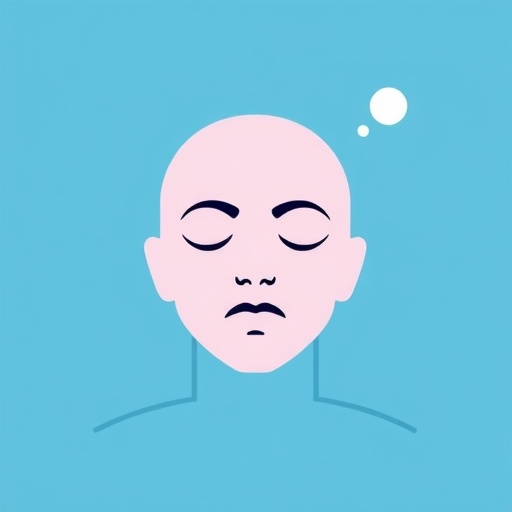In a groundbreaking cross-sectional study conducted in Iran, researchers have unveiled significant insights into the complexities of mental health by examining self-stigma, insight, and their interrelation with various psychiatric disorders. The study primarily focuses on patients diagnosed with major depressive disorder (MDD), general anxiety disorder (GAD), and obsessive-compulsive disorder (OCD). This research aims not only to highlight the psychological burdens borne by these patients but also to explore how self-stigma may complicate their mental health conditions. The findings are poised to reshape understandings of mental illness and inform treatment approaches in clinical settings.
Self-stigma is a pervasive issue that can lead to feelings of shame and inadequacy among individuals suffering from mental health disorders. Many patients grapple with negative perceptions of themselves, fueled by societal misconceptions about psychiatric conditions. The study highlights that self-stigma can diminish personal insight, reinforcing a cycle of despair that can exacerbate symptoms. By emphasizing the role self-stigma plays in mental health distress, this study opens a conversation about the urgent need for transformative educational campaigns and supportive interventions.
In this research, the participants underwent several assessments to quantitatively measure aspects of self-stigma and insight. The instruments included validated questionnaires that gauge levels of stigma experienced and the patients’ ability to understand their conditions. The results revealed a striking correlation between high levels of self-stigma and lower insight, particularly in patients with MDD. This suggests that as individuals internalize societal stigma, their ability to recognize and seek help for their ailments diminishes, ultimately leading to poorer health outcomes.
Interestingly, the study did not find uniform results across all disorders studied. Patients with GAD exhibited different patterns of self-stigma and insight compared to those with MDD or OCD. This discrepancy highlights the heterogeneity of mental health issues and underscores the importance of tailored treatment strategies that address the unique challenges faced by individuals with different diagnoses. The findings advocate for a nuanced approach in therapy, considering how each disorder interacts with constructs of self-image and awareness.
Moreover, the authors suggest that the implications of self-stigma extend beyond personal feelings; they impact the willingness of patients to engage in treatment and adhere to therapeutic regimens. The reluctance to seek help is particularly troubling, as it creates barriers to recovery. This phenomenon was observed in multiple participants, who expressed hesitancy in discussing their mental health issues due to fear of judgment or ridicule. These findings raise critical questions about the societal structures that perpetuate negative stereotypes about mental illness and necessitate action from mental health advocates.
The methodological rigor of this study is commendable. The cross-sectional design allowed researchers to capture data at a single point in time, facilitating a snapshot of how self-stigma and insight are intertwined within populations suffering from specific mood and anxiety disorders. However, it also raises potential questions about the causative relationships among these variables. Future longitudinal studies could provide deeper insights into how fluctuations in self-stigma over time may influence levels of insight and, consequently, treatment outcomes.
The researchers also emphasize the need for further exploration into the cultural context surrounding mental health in Iran. The interplay between cultural norms and individual experiences of self-stigma could provide essential clues for crafting effective mental health policies and interventions. Understanding how local beliefs shape attitudes toward mental health could lay the groundwork for culturally sensitive initiatives that effectively combat stigma.
In addition to advocating for educational programs, the study underscores the importance of fostering supportive therapeutic environments where patients feel safe to express themselves. Mental health professionals are encouraged to integrate discussions about self-stigma into therapeutic settings, promoting open dialogue and encouraging patients to challenge their negative self-perceptions. By doing so, therapists can help patients rebuild self-esteem and enhance their insight, ultimately leading to better health outcomes.
The ramifications of the study extend to public policy as well. Policymakers must take into account the mental health stigma that exists within society when creating programs and funding resources for mental health treatment. This study could serve as a catalyst for initiatives aimed at destigmatizing mental illness, advocating for patient rights, and ensuring access to essential mental health services.
Furthermore, disaggregating data based on gender and age could yield more targeted findings, providing insights into how different segments of the population experience self-stigma. Recognizing that men and women may perceive their mental health differently can inform more sensitive approaches in treatment and resources allocated to mental health initiatives.
Collaborative efforts between mental health professionals, community leaders, and policymakers can pave the way for comprehensive mental health strategies that encompass education, open discussions, and stigma reduction. This could potentially reshape societal attitudes toward mental illness, fostering an environment where individuals feel empowered to seek help without fear of discrimination.
In conclusion, the study’s findings call for immediate reflection on the systemic issues surrounding mental health and the stigma that persists in societies, particularly in Iran. Self-stigma significantly impacts insight and treatment engagement among individuals with major depressive disorder, general anxiety disorder, and obsessive-compulsive disorder. By addressing these issues head-on, stakeholders can create a more supportive landscape for mental health care that prioritizes understanding and compassion over fear and prejudice. As we advance our knowledge of mental health, it is imperative to remember that our collective effort toward destigmatization can help countless individuals reclaim their narratives and access the care they truly deserve.
Subject of Research: Self-stigma, insight, and their relationship with major depressive disorder, general anxiety disorder, and obsessive-compulsive disorder.
Article Title: Self-stigma, insight and related factors among major depressive disorder, general anxiety disorder and obsessive-compulsive disorder patients: a cross-sectional study from Iran.
Article References:
Ayoubi, A., Amirkafi, A., Shariat, S.V. et al. Self-stigma, insight and related factors among major depressive disorder, general anxiety disorder and obsessive-compulsive disorder patients: a cross-sectional study from Iran.
Discov Ment Health 5, 94 (2025). https://doi.org/10.1007/s44192-025-00237-y
Image Credits: AI Generated
DOI: 10.1007/s44192-025-00237-y
Keywords: Self-stigma, insight, major depressive disorder, general anxiety disorder, obsessive-compulsive disorder, mental health, Iran.




